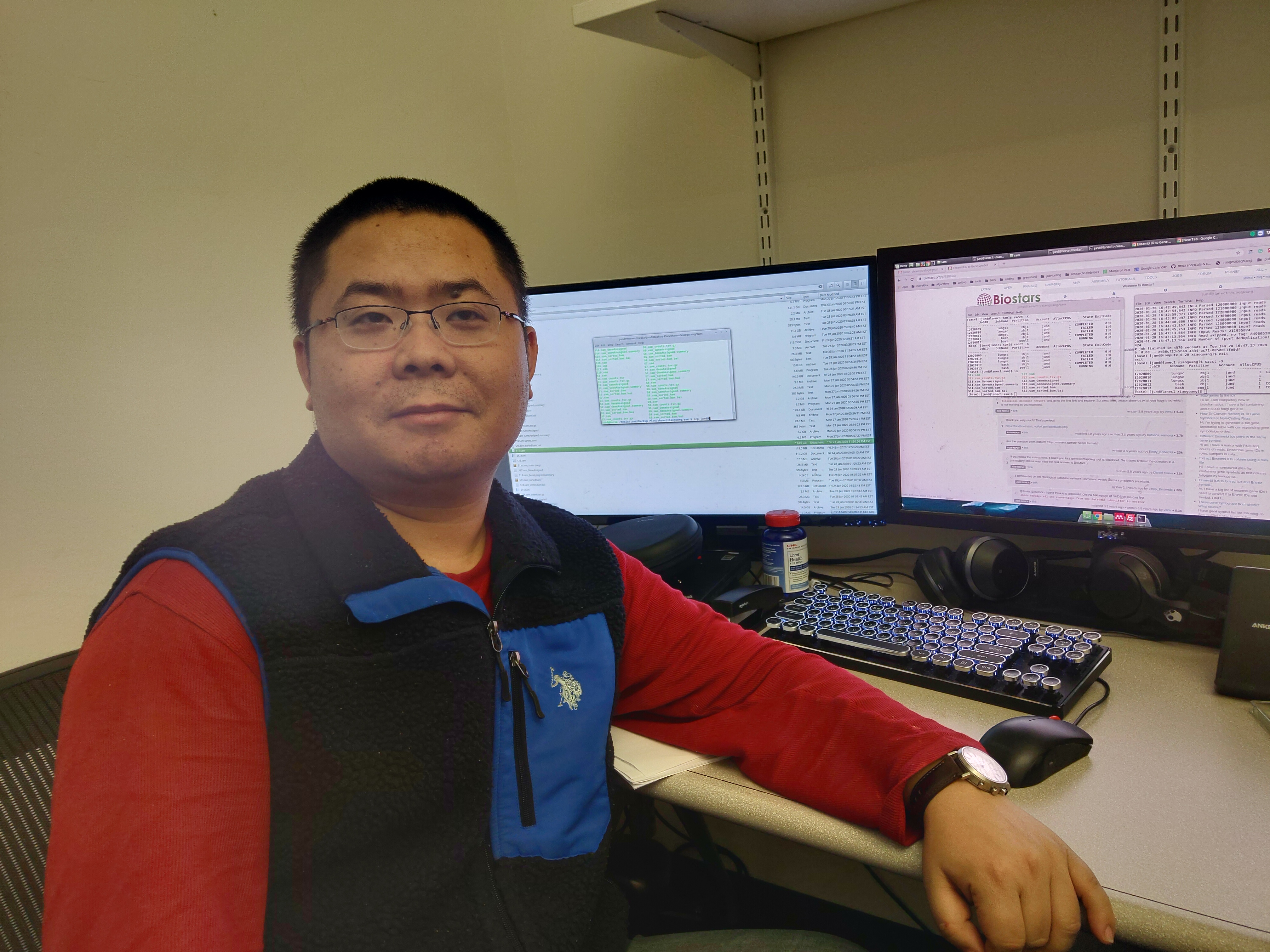Researchers Build a Better Lung Model New Technique May Lead to Personalized Treatments for Lung Diseases
Byron Spice (Carnegie Mellon) and Gina DiGravio (Boston University)Thursday, January 30, 2020Print this page.

Computational biologists at Carnegie Mellon University, working with colleagues at Boston University, have used machine learning techniques to develop an improved protocol for generating lung cells that can be used for investigating lung diseases.
They reported the method in today's issue of the journal Cell Stem Cell.
The lung cells are produced from induced pluripotent stem (iPS) cells, which are adult skin or blood cells that have been reprogrammed so they can potentially produce any cell or tissue type. By treating these iPS cells with growth factors over a period of a month, the researchers were able to transform them into cells very much like adult lung cells.
Moreover, unlike previous attempts to create lung cells from stem cells, these lung-like cells can maintain their new characteristics for more than a year.
Because the cells can be derived from any individual, the researchers believe this new method will improve their ability to study and treat lung disease, including idiopathic pulmonary fibrosis, chronic obstructive pulmonary disease (COPD), alpha-1 antitrypsin deficiency and neonatal respiratory distress or early-onset interstitial lung disease.
"The machine learning methods we developed for this study can also be applied to studies of other tissues and organs," said Jun Ding, a post-doctoral researcher in CMU's Computational Biology Department (CBD), who co-authored the research paper with Dr. Killian Hurley, a researcher at the Royal College of Surgeons in Ireland. "We hope that our newly developed techniques for generating a pure, unlimited supply of cells using patient-derived stem cells can make possible new treatments or cures for diseases. These developments have the potential to prolong lives and improve the quality of those lives."
Dr. Darrell Kotton, director of the Center for Regenerative Medicine at Boston University and co-corresponding author with Ziv Bar-Joseph, professor in CBD and CMU's Machine Learning Department, said the new method will allow researchers to generate an inexhaustible supply of new lung cells for any patient of any age.
Byron Spice | 412-268-9068 | bspice@cs.cmu.edu<br>Virginia Alvino Young | 412-268-8356 | vay@cmu.edu
